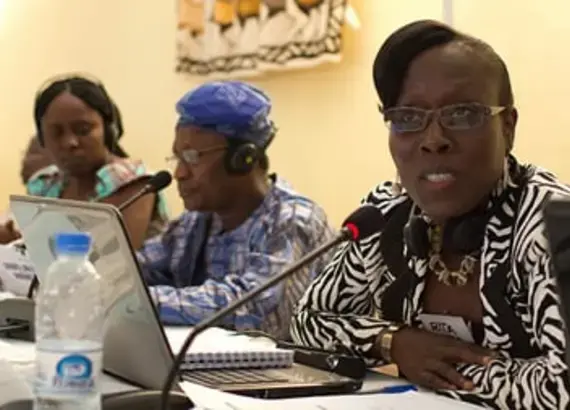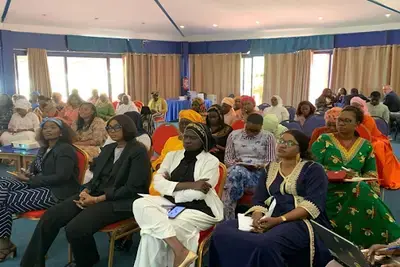
Success Story
Liberian Election Observers Plan for Future with Help of Regional Coalition
When Liberians went to the polls to elect a president last fall, 1,801 citizen observers fanned out across the country to observe voting, counting, tallying and recording of results. They were part of the Elections Coordinating Committee (ECC), a coalition of more than 30 civil society organizations that observed all aspects of the election process, which it found to be “free, fair and transparent.”
But once the election was over, the ECC faced a challenge common to many other citizen monitoring groups — how to keep its supporters and volunteers engaged and preserve all the organization, cooperation, planning and volunteer enthusiasm it had generated during the elections.
To help answer that question, the coalition turned to the West Africa Election Observers Network (WAEON), a group launched in February 2011 comprising citizen observation groups from 11 countries in West Africa, to help ensure accountability, increase honesty and accuracy, and instill confidence in legitimate election results in their countries. One of WAEON’s main goals is to help observers from different countries exchange ideas from their range of experiences.
WAEON representatives gathered with their Liberian counterparts in Monrovia, Liberia’s capital, last month at a meeting hosted by the WAEON Secretariat, NDI and the Liberia Democratic Institute (LDI). They discussed how they have maintained their election day organizations, continuing advocacy, voter education or parliamentary monitoring efforts. For example, the Senegalese Assembly for the Defense of Human Rights is monitoring whether elected officials are fulfilling their campaign promises.
Michael McNulty, NDI program manager for elections who served as a trainer at the meeting, discussed the challenges election observation groups often face after elections — funding dries up, media turn away and volunteers disengage. Maintaining momentum can be difficult, but setting goals, priorities and action plans can help organizations stay engaged, he said.
“You need to focus on the electoral cycle as a whole in your planning,” said one of the Liberian participants. “Not just look at the polling day as a one-off event.”
One goal can be to follow up on reforms and recommendations issued in election statements to encourage that they be carried out in time for the next elections, according to participants. Groups can also embark on advocacy campaigns for electoral reform, monitor parliament and parliamentarians, or educate voters in preparation for the next campaign. McNulty drew on examples of successful transitions, such as Nigeria, where a civil society election observation group turned its efforts to promoting electoral reform; Ukraine, where a coalition of civil society groups advocated to make the electoral reform process more transparent and inclusive; and Uganda, where civil society now uses scorecards to monitor performance of parliamentarians.
During breakout sessions, LDI members worked with WAEON representatives to develop post-election plans for Liberia, drawing on the experiences of their WAEON counterparts. At the end of the meeting, WAEON issued a statement calling on Liberians to review the country’s process for adjudicating election disputes and to consider separating that from election management. LDI hopes to work with the ECC to take up this cause in the coming months as it prepares for the next elections.
Related:
Published June 7, 2012



